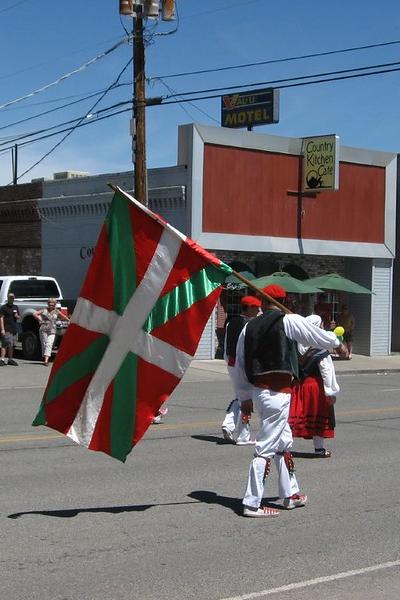Have you ever wondered where our "Colombian" last names came from? Can you tell the difference between a “Carabalí”, an “Ubaque” and an “Arrechea”? While it is no easy job to draw a Colombian family tree, this article might give you a clue of where some of our most influential ancestors came from and their cultural legacy.
If you guessed all three last names above are indigenous, I'm afraid you were wrong. The first one is African - Yoruban Nigerian to be more concrete, the second one is Muisca, from the Chibcha tribe that inhabited Cundinamarca and Boyaca, and the last one is Basque. But who are the Basques?

The Basques are a millenary people who occupy the area between the Gulf of Biscay and the Pyrenees around the French-Spanish border. They speak a puzzling language called Euskara, its origins are unknown and it doesn't sound at all like Spanish or French, not even like Arabic as some may argue. They have been living there since even before the last ice age, which finished over ten thousand years ago. Now, at the time of the "conquest" of the Americas the Catholic monarchs of Spain had just taken over most of the Iberian peninsula and had forced everyone there to speak Castilian (today's Spanish), including many ambitious, adventure-hungry Basques who wanted to "conquer" the new world.

Thus, speaking often just poor Spanish, many Basque clergymen, seamen, agriculturists, artisans, and military came to settle throughout the whole continent, and along the way became traders, large estate owners, government clerks, or simple pawns ancestors to many landless Colombians. Some others, however, became criminals and enslavers that is why many African Colombians have Basque last names. In Colombia, there were Basque settlers in almost every region, but judging for the number of popular Basque last names used, the "most Basque" regions are the Paisa area, Santander, and the extreme north-East known as the ancient greater Magdalena region.
According to Basque Genealogists Jaime de Kerexeta and Francisco the Abirsqueta, there have been over 3,500 Basque last names in Colombia, and according to American Historian Everette Hagen 15% of “Antioqueños” have a Basque surname. Imagine, at least eight Colombian presidents have had Basque last names!
Whatever they may have been, they brought not just their last names with them, but also many of their beliefs and traditions. These traditions include the "trova" or improvised musical verse-making challenges, the fondness for pork and red beans, the machete dance, even the bipolar disorder, unfortunately, as well as a few words and a lot of our accent, especially, the paisa accent.


The Basque government has worked hard in promoting their culture and bringing Basque culture closer to the Basque diaspora, and for this, they have opened close to 200 Basque centers around the world. These centers provide information about Euskal Herria (the Basque country) organize cultural events, and often offer Basque-language courses. They are called Euskal Etxeak (Basque houses) and we have three of them in Colombia, one in Bogotá and two in Antioquia. It is important to highlight the significant historical research work they have done in our country, including the bibliography mentioned below.
Finally here are some of the most popular or curious Basque last names in Colombia; Aguirre, Alzate, Aranzazu, Arbeláez Aristizábal, Arrieta, Azcárate, Bedoya, Bengoechea, Bolívar, Echeverry, Gardeazábal, Gaviria, Isaza, Montoya, Mendieta, Ochoa, Oñate, Orozco, Ortiz, Salazar, Saldarriaga, Uribe, Urrea, Urrego, Urrutia, Urruticoechea, Usuriaga, Zabala, Zuleta, Zuluaga, and believe or not, recent studies indicate many of our Lopez’s, García’s, and other common Spanish last names also came from the Basque country, though it would be difficult to establish exactly who brought them.
Other interesting links
- Red Euskal Etxeak - Basque culture centers around the world
- Learn Euskara free (Antioquia) and share your languge learning experiences with others
- A song in Basque by Colombian singer Juanes recorded in 2009
Bibliograhy (in Spanish)
- Vascos en Colombia, Tomos 1 y 2, Francisco de Abrisketa, Jaime de Kerexeta (Oveja Negra, Bogotá, 1985)
- Vasco-Navarros en Antioquia, John Alejandro Ricaurte Cartagena (Gobierno Vasco, Vitoria, 2011)
- Los Vascos en Antioquia durante el reinado de los Austrias, John Alejandro Ricaurte Cartagena (CEVA, Medellín, 2015)

